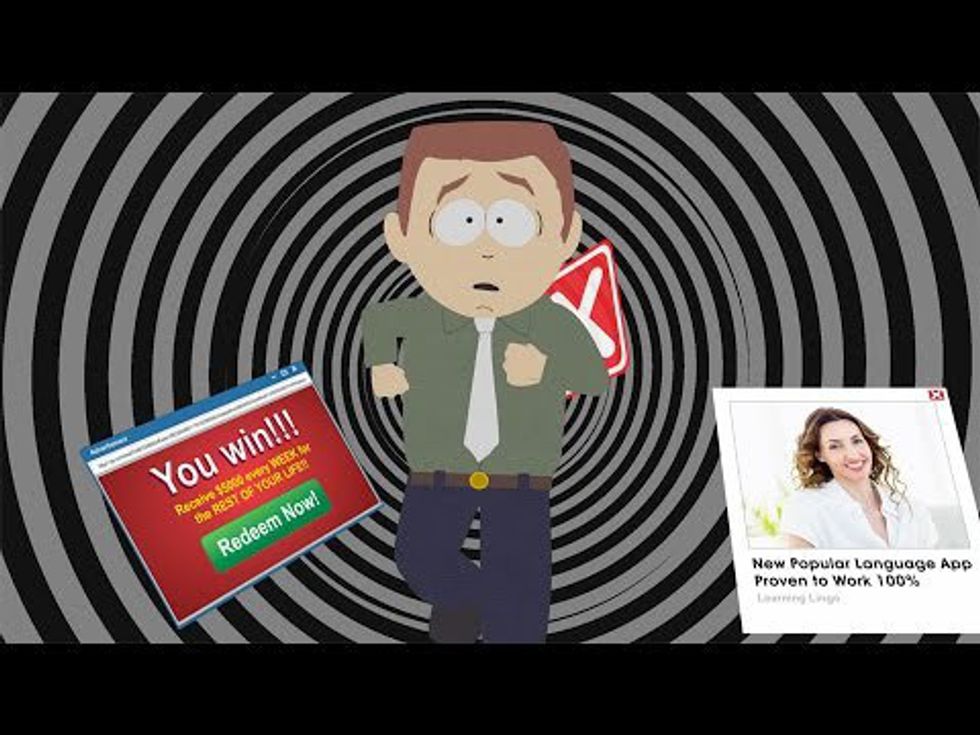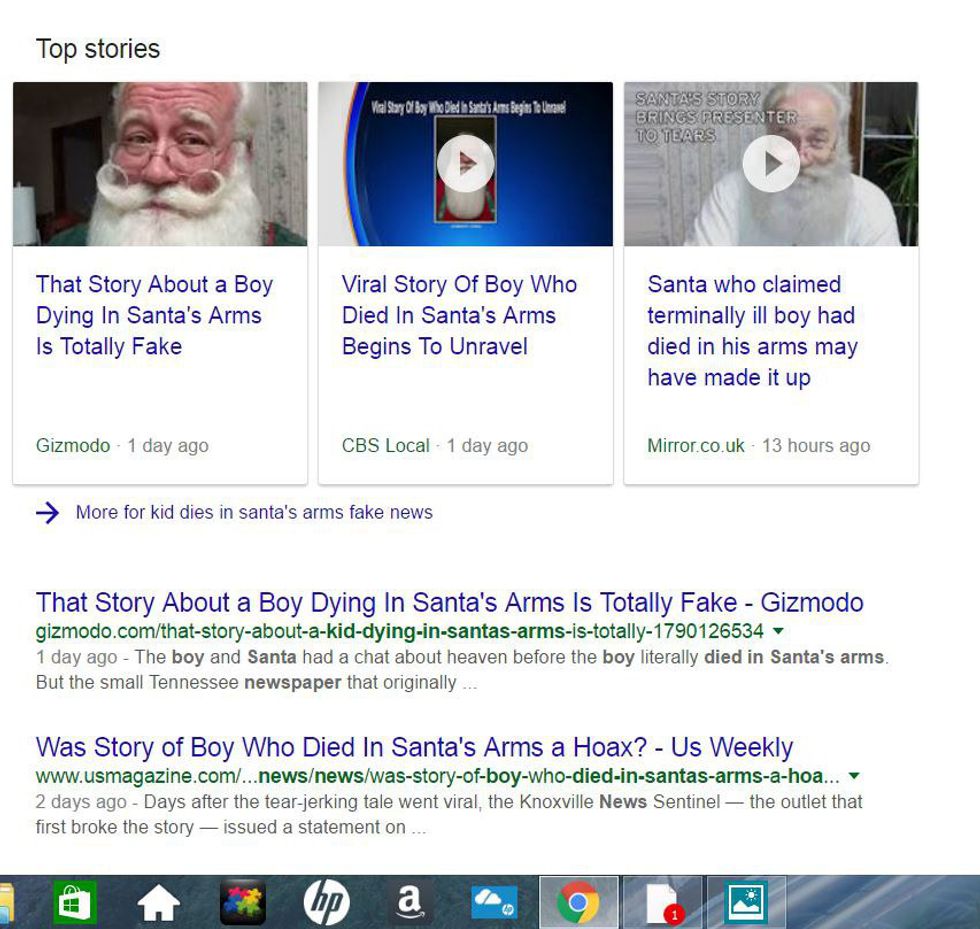South Park discussed the annoyance that is "sponsored content" over a year ago, and here I was this week, tearing up over a story about a kid that died in the hospital after meeting Santa, completely oblivious that the story was questionable at best. I was taken for a fool.
Many have seen a video involving a story about a terminally ill child dying after a touching visit from Saint Nick only to realize that it was totally fake. Or... wait was it? After I read somewhere else that the story had been fake, I took to Google to search for the truth. Here is an actual screenshot from my search:
After viewing these search results, I came to the conclusion that the story was not real. However, I was dismayed to see that the story hadn't been called an outright lie; instead, it was questioned more than anything else: "story beings to unravel;" "may have made it up;" "is it a hoax?" The one site that called it an outright lie is a site called gizmodo.com. I'm sorry, but who is "gizmodo," and what news station are they? I clicked the gizmodo link to investigate, but the link wouldn't even open.
I read a few comments on other stories that called out the Santa story for being a hoax, and to my further confusion people were actually upset about other people being angry about it: "it's a nice story! Who cares if it's fake!" To me, that's unsettling. Why should we care about fake news?
For one, it makes it more difficult for us average joes to actually be informed. Second, they can bring very real consequences: according to National Public Radio (a credible source), a man entered a pizza shop to "self-investigate" a ridiculous online conspiracy theory, and actually fired a weapon inside the restaurant. Or remember that time someone wrote an obituary for the Great Barrier Reef and we all actually believed that it died? Of course that doesn't mean we shouldn't worry about the health of the Reef, but does show how quickly baseless, unfounded stories are quickly believed by passive readers.
So how should you protect yourself from the general great wave of garbage that seems to flood your newsfeed every time you log in? NPR created a whole list of tips for identifying fake news sources. But the simplest tips of all? Be extremely cautions of things that are circulating online, especially stories that seem more extraordinary than usual. A quick Google search might tip you off whether or not it is actually real.
Next, only share and believe stories from reputable and well-known news sites, like NPR, BBC, Wall Street Journal, New York Times, economic and scientific journals and magazines, the list goes on. In fact, don't look to your Facebook newsfeed for actual news. Stay informed by seeking out these reputable sources and reading them regularly.
Finally, if you have been taken for a ride? Don't worry about it. It happens to the best of us. Stay cautious, friends.























